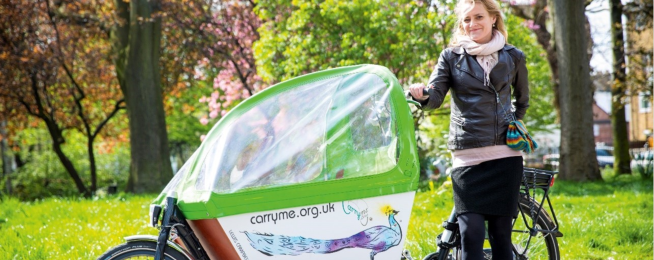Cargo bikes are on the up as communities seek to reduce traffic congestion and emissions in cities, either by commercial logistics or household doing their own schlepping.
A report out of the UK suggests we might get more cargo bikes on the street, sooner, and serving more people, if we understand more about how and why non-commercial cargo bike use is growing.
A London social enterprise, Fare City, conducted a series of interviews of stakeholders to get a better grasp of the issues and concluded that there is potential for more private and communally owned cargo bike use, if the right incentives and support exists.
One key finding was that private cargo bike users were usually already experienced bike riders, so you will naturally get more of them in places where there are already people riding bikes for commuting and other purposes.
However, to get riding take-up, you have to have the infrastructure and other conditions that encourage bike riding generally.
So merely subsidising cargo bikes in bike-unfriendly suburbs might not get the results you expect.
Interestingly, they that found that a strong motivation for ownership was taking children to school. Conversations at the school gate led to other parents doing the same thing.
And once the children get older and no longer need carrying to school, the bikes were more frequently used for shopping and other tasks.
There was also a strong desire to be less reliant on motor vehicles, but not necessarily as a complete replacement, but as a complimentary mode of transport.
The report identifies a number of opportunities and challenges:
Safety. Riders feel safe on cargo bikes because they are more visible. But because of their size, they need more space in the bike lane or on the road.
Regulation. There needs to be some regulation around the carrying of loads, and introductory trailing and familiarisation.
Infrastructure. Suitable parking infrastructure is important, and security from theft. Immobilizers for e-cargo bikes may help.
Demand and Accessibility. The COVID-induced supply chain chaos means demand is well outstripping supply. There should be more events and activities that allow people to try before they buy, And, more opportunities for rental, sharing or community or group ownership.
Culture. For many people bike riding has been seen as recreational rather than something you do for utility purposes. So, riding a cargo bike is out-of-scope for many people.
Become our friend
Find out more about Bicycle Network and support us in making it easier for people to ride bikes.


